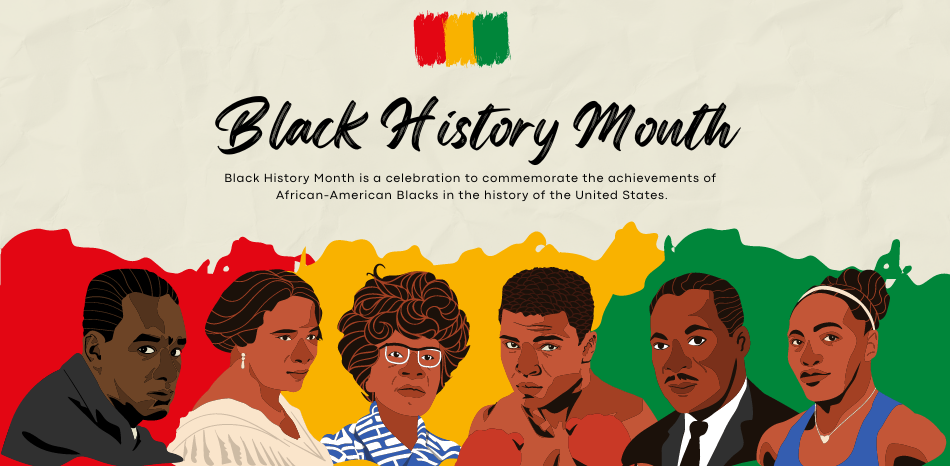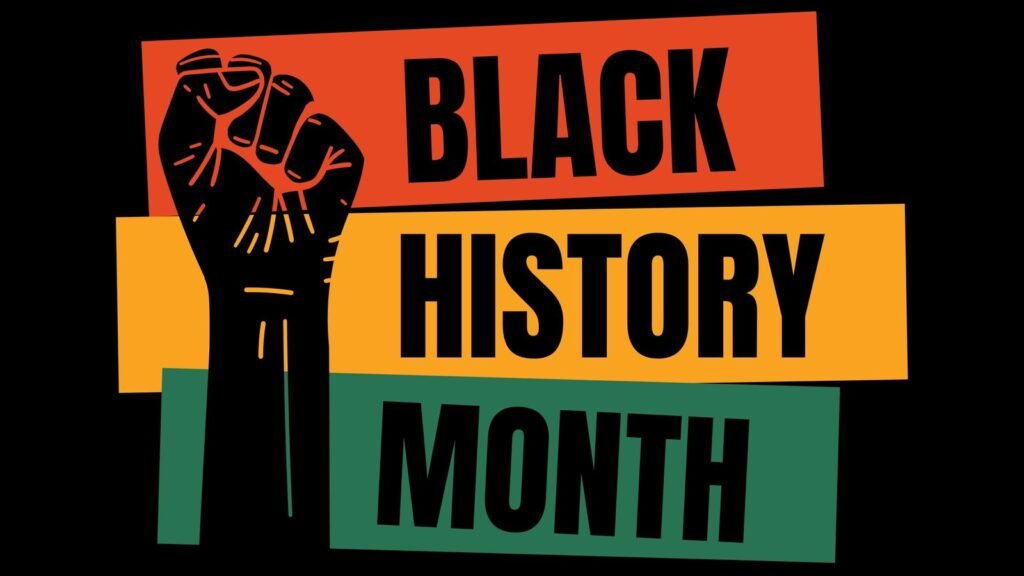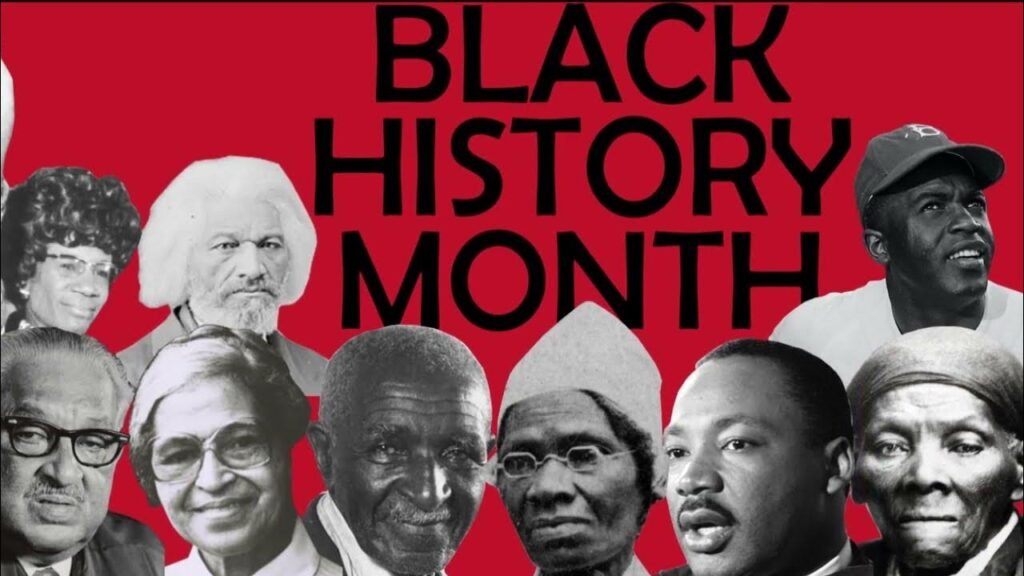Table of Contents
ToggleTop 10 Amazing and Unknown Facts About Black History Month
Every year, Black History Month is observed to celebrate the contributions, history, and accomplishments of African Americans and the larger African diaspora. Black History Month is observed annually in October in the United Kingdom and February in the United States and Canada. Its purpose is to honor the rich cultural legacy and lasting influence of black people across time.

Black History Month began in 1926 with the establishment of “Negro History Week” by historian Carter G. Woodson and the Association for the Study of Negro Life and History. The decision was made to select this week to fall on the birthdays of Frederick Douglass and Abraham Lincoln, two men who played a key role in the American government’s decision to outlaw slavery. The festival grew over time to last for a whole month, and in 1976—during the U.S. Bicentennial—it was granted formal status.
Black History Month offers a chance to tell people’s stories—which are frequently left out of popular accounts—about the hardships and victories faced by black people. This is a moment to honor the cultural contributions made by black musicians, writers, artists, and intellectuals who have influenced the arts, literature, and music. Americans remember people like Duke Ellington, James Baldwin, and Maya Angelou for their significant contributions to American culture.
Black History Month honors the social and political accomplishments of black leaders who have battled for justice and civil rights in addition to the arts. The legacies of Malcolm X, Rosa Parks, and Martin Luther King Jr. continue to serve as an inspiration for social justice and equality campaigns.
Black History Month is commemorated in communities, schools, and cultural organizations with lectures, performances, exhibitions, and instructional initiatives. In addition to paying tribute to the past, these occasions promote introspection about the difficulties black communities still have today and the significance of carrying on the struggle for racial justice.
In the end, Black History Month honors black people’s tenacity, inventiveness, and lasting contributions to society. Now is the moment to pay respect to the past, acknowledge the present, and encourage the next generation to create a society that is more inclusive and just.
Here’s top 10 amazing, unknown and interesting facts about Black History Month
1. The Origin of Black History Month
The history of Black History Month begins with a single week. The Association for the Study of African American Life and History (ASALH) was founded in 1926 by distinguished historian Dr. Carter G.
Woodson, who also instituted “Negro History Week.” Woodson selected the second week of February to fall on the birthdays of Frederick Douglass and Abraham Lincoln, two important leaders in African American history.
The goal of the week was to promote black history, which at the time was mainly neglected in American schools, through study and celebration. Not until the United States Bicentennial in 1976 was the week extended into a month-long commemoration, with President Gerald Ford formally recognizing it as Black History Month.
2. The First Official Black History Month Theme
The American Society of Black History (ASALH) selects a topic for Black History Month each year to emphasize a different facet of black history. In 1928, the first official theme was unveiled, emphasizing the contributions made by African Americans to American culture.
Themes have changed since then, touching on subjects including black migration, black health and wellness, and the Civil Rights Movement, among others. These guiding themes make sure that various aspects of black history are highlighted and honored throughout Black History Month by providing direction for programming and educational initiatives.
3. Black History Month is Celebrated Internationally
Although Black History Month is mostly connected to the United States, it is observed in many other nations as well. Similar to the US, Black History Month is celebrated in February in Canada.
Nonetheless, October is designated as Black History Month in the UK, Ireland, and the Netherlands. These international celebrations underscore the influence of the African diaspora on a global scale by emphasizing the history and accomplishments of black people within their various nations.

4. The Role of HBCUs in Black History Month
Black History Month is widely celebrated, and historically, black colleges and universities, or HBCUs, have been instrumental in making this happen. During the Reconstruction era, numerous HBCUs were established to give African Americans access to higher education that they would not have otherwise had at institutions predominately attended by white students.
Throughout Black History Month, these institutions frequently hold events, seminars, and exhibitions, demonstrating their leadership in the preservation and promotion of black history and culture. As hubs of black activism and intellectual thinking, HBCUs continue to support the continued acknowledgment and celebration of black heritage.
5. Black History Month and the Civil Rights Movement
The Civil Rights Movement’s momentum played a role in the 1976 expansion of Negro History Week into Black History Month. A rising number of people realized in the 1960s that Black history needed to be celebrated more broadly as the movement brought attention to the systemic racism and injustices that African Americans had to deal with.
Many civil rights leaders, educators, and activists who understood the value of honoring Black Americans’ accomplishments backed the request for a longer commemoration of Black history. Black History Month has evolved into a forum for highlighting black people’s accomplishments and hardships as well as educating the general public about the continuous battle for racial equality.
6. The Global Influence of African American Culture
It is common to emphasize the significant influence that African American culture has had on world culture during Black History Month. African American contributions to literature, art, music, and fashion have influenced and enhanced numerous global cultural movements. African American-inspired musical genres such as jazz, blues, hip-hop, and others have become well-known worldwide, impacting musicians and artists everywhere.
Comparably, the 1920s cultural and artistic movement known as the Harlem Renaissance left a lasting impression on theater, art, and literature both domestically and internationally. Black History Month offers a chance to honor these cultural achievements and their significance on a worldwide scale.
7. The Role of Black Women in Black History Month
Even though Black History Month frequently honors well-known individuals like Frederick Douglass, Malcolm X, and Martin Luther King Jr., it is crucial to acknowledge the enormous contributions made by black women throughout history. Angela Davis, Rosa Parks, Sojourner Truth, Harriet Tubman, and Rosa Parks are just a few of the important individuals who have shaped African American history and advanced civil rights.
Black women have made significant contributions to science, politics, literature, activism, and other professions, and Black History Month offers a forum to celebrate these accomplishments. They should be honored for their efforts, which are essential to the tale of black history.
8. The Intersectionality of Black History Month
In addition to honoring African American history, Black History Month also recognizes the variety of experiences that exist within the Black community. The term “intersectionality,” which was first used by legal scholar Kimberlé Crenshaw, refers to the way that several facets of identity, including race, gender, class, and sexual orientation, overlap and produce distinct experiences of privilege and discrimination.
This intersectional approach has been more widely accepted during Black History Month, acknowledging the variety of voices and experiences within the black community. This includes honoring the accomplishments of Afro-Latinos, LGBTQ+ Black people, and other disadvantaged groups whose tales are frequently left out of popular narratives.

9. Black History Month in the Digital Age
The introduction of social media and the internet has changed how people celebrate and talk about Black History Month. Connecting with people who are interested in Black history, sharing tales, and obtaining knowledge has become simpler thanks to online platforms.
Black History Month has been more widely recognized and approachable for a worldwide audience thanks to the use of educational materials, movies, online events, and social media campaigns. Users may join in the celebration and learn about black history in real-time on social media by using popular hashtags like #BlackHistoryMonth, #BHM, and #BlackExcellence. The digital era has also made it possible for people and grassroots groups to join the discussion, broadening the range of viewpoints and stories that are discussed during Black History Month.
10. The Future of Black History Month
There is a continuous discussion over Black History Month’s future and how it may best support the black community and society at large as it continues to change. A more comprehensive approach to black history, where it is taught in regular classrooms throughout the year as opposed to only one month, has been advocated by certain academics and activists.
Some argue that Black History Month should remain an important occasion to honor and commemorate black history and accomplishments. To ensure that black history is properly integrated into the larger historical and cultural narrative, Black History Month may incorporate a combination of these tactics in the future.
Conclusion
Black History Month is a time for introspection, learning, and action rather than just a celebration. This blog post’s list of obscure and little-known Black History Month facts highlights the breadth and depth of black history, which goes far beyond the well-known people and occasions that are frequently connected to the month.
It is crucial that we acknowledge and appreciate the many accomplishments made by black people and communities throughout history and the present as we continue to celebrate Black History Month. By doing this, we can make sure that black history is remembered by all and continues to serve as an inspiration to coming generations.

